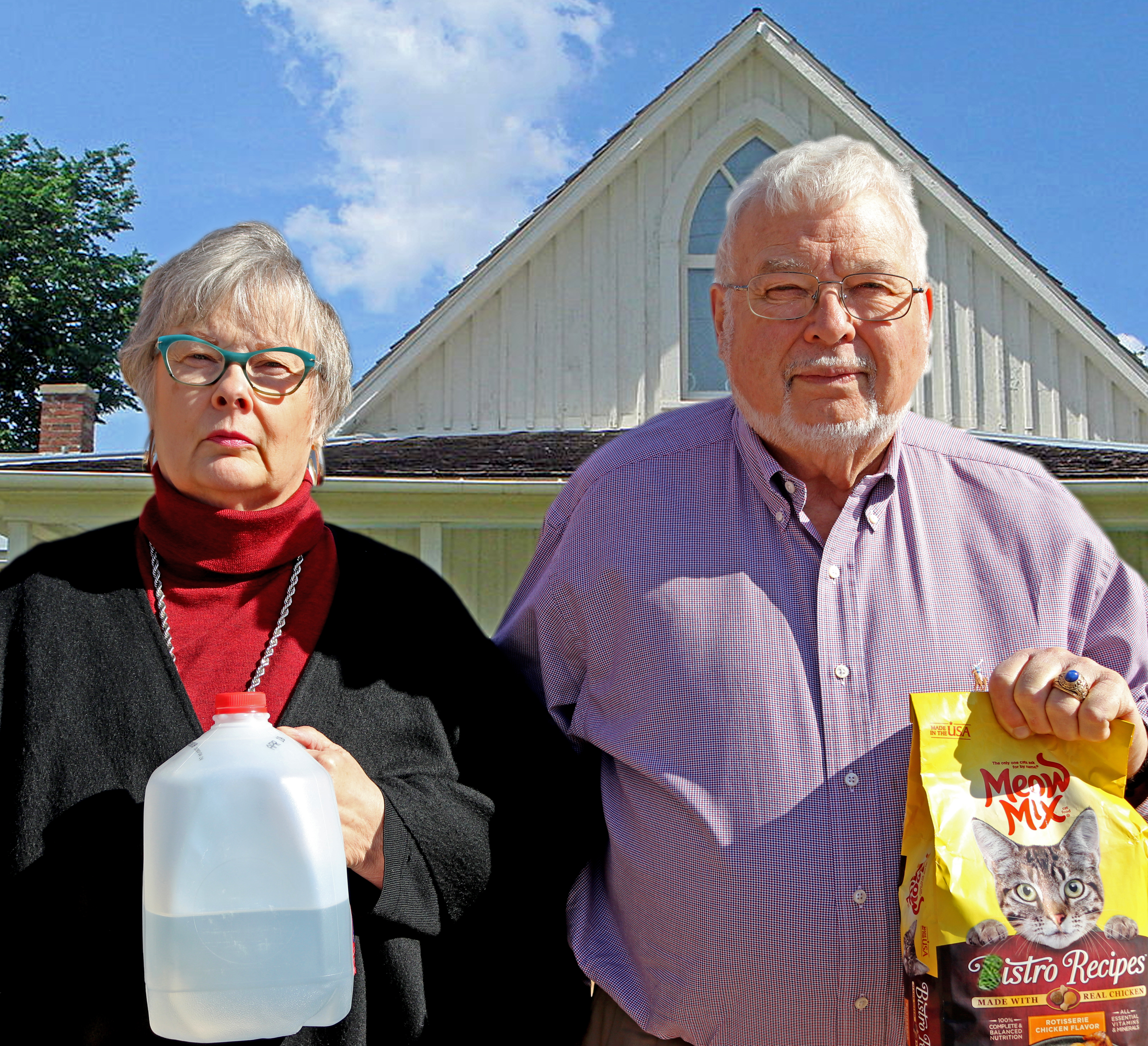Sue and Ray Jones helped feral cats. Then the City of Augusta took them to court.
AUGUSTA – Sue and Ray Jones want to make one thing clear.
“We’re not crazy old doddering people who sit in the corner and said ‘We’re going to take care of kitties now,’” Sue says.
But the Augusta couple will be associated with cats forever in some people’s minds thanks to their legally risky decision to care for feral felines and the work of a New York-based documentary filmmaker. “Catnip Nation,” a film which feature the Joneses, was shown at the Tallgrass Film Festival in Wichita last month and will make its way to the Kansas International Film Festival in Overland Park this month. It’s been well received at film festivals on the East Coast and will be available via streaming services next year.
Asked if she ever expected her championing of half-wild cats to catch the attention of so many people, Sue Jones laughs and says, “No, absolutely not. That just came completely out of the blue.”
Sue Jones grew up in Augusta, where her dad was a longtime Lennox dealer and electrical contractor. She returned and opened an interior design business after marrying and spending 35 years in management jobs in Colorado, Houston and elsewhere; Ray Jones worked in marketing. In 2014, after moving her business to a new location in downtown Augusta, Sue noticed a colony of feral cats behind the store.
“I started feeding them and giving them water,” she said. The city of Augusta issued citations to both of the Joneses, which they paid. When the city made plans to trap and euthanize the cats, the couple arranged with a Wichita group called Friends of Felines to trap, neuter or spay the cats and relocate them to a farm in Sedgwick County.
Sue Jones had spotted a second colony of feral cats in an alley across the street. She provided them water during a dry spell, arguing that “there’s nothing in the city ordinances about water.” Nevertheless, Jones said, the city “decided to make an example of us” and charged the Joneses with 21 violations of city ordinances.
Sue Jones had served on the City Council from 2011-15, lobbying unsuccessfully for a program to trap, neuter and release feral cats (a movement known nationally as “TNR”).
“The police chief at the time, he and I had tangled on a couple of different issues. He was opposed to it.”
A municipal court judge acquitted the couple of all but four of the charges, imposing a fine for those charges. Sue Jones says the couple also was told they could be jailed if they continued to help the cats. The couple appealed the verdict to Butler County District Court.
“I thought, you know, that’s just nonsense,” Sue Jones said. “Compassion should not be a crime in the city of Augusta or any other city.”
A year later, it took the district court jury less than 15 minutes to find in favor of the Joneses.
Tina Traster, a veteran journalist-turned-filmmaker in New York, had been working on a documentary about feral cats when she heard about the Joneses and decided to make them part of it.
Traster said there are an estimated 90 million feral cats in the United States, “living behind shopping centers, condos, malls, you name it.”
“It’s not just us,” she added, “it’s all over the world.”
The problem was created by negligent owners who fail to spay or neuter cats, which then escape and “reproduce at an unbelievably alarming rate.” Because of their long history of domestication, the felines naturally inspire some people to help them, and those people are often older.
The feral cat advocates in her film “are all in their 70s,” Traster said. “I guess people who are moving toward retirement have the time. They ‘ve lived a long life, they get involved in this world.”
TNR programs are well organized in some places, Traster said, but mostly the movement struggles.
The Augusta City Council rejected Jones’ TNR proposal by a 6-1 vote when she sat on it, and she says current members seem no more sympathetic to the idea. Nevertheless, she intends to collect citizens’ signatures and present a petition. Lawrence, Topeka and several other Kansas cities have successful programs; the issue is currently under study in Wichita.
Jones acknowledges the programs are not cheap; it can cost about $60 per cat. But she says the alternatives are either inhumane or the creation of even more feral cat colonies.
Asked about her legal battle, Jones said she “wouldn’t recommend it to anybody but I would do it again because the city of Augusta was wrong. There are still feral cats in downtown Augusta. They still need to be cared for.”









